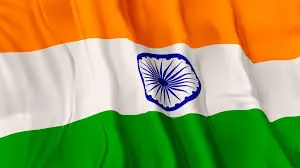*Author: Prof. Engr. Zamir Ahmed Awan, Founding Chair GSRRA, Sinologist (ex-Diplomat), Editor, Analyst, and Non-Resident Fellow of CCG (Center for China and Globalization). (E-mail: [email protected]). *
The government of India overreacted to the British Broadcasting Corporation’s documentary on Indian Prime Minister Narendra Modi has laid bare the BJP regime’s increasingly authoritarian and intolerant disposition. Since the airing of the first episode, the Indian government has used aggressive language to dismiss the film as “propaganda” and resorted to blocking any clips uploaded to YouTube. Further has invoked emergency powers to block tweets and posts about the documentary – a move that shows how easily the Indian government can crack the censorship whip to stifle criticism against the ruling party. The documentary consists of two-part series showing the rise of Modi, his links to the Hindu extremist Rashtriya Swayamsevak Sangh, and his role in the 2002 Gujarat riots, where he served as chief minister at the time. The riots were one of the most violent moments in post-partition India, where 1,000s people, mostly Muslims, were killed after the Godhra train burning. It is this moment that the documentary examines closely, and that is being seen as most offensive to the Indian authorities. The documentary talks of a secret probe undertaken by the UK Foreign Office into the riots, with a subsequent report holding Modi “directly responsible” for the “climate of impunity” that enabled the violence. Former foreign secretary Jack Straw, too, tells the filmmakers that Modi “had a pretty active part in pulling back police” and “encouraging” Hindu extremists. PM Modi was refused the US visa based on his alleged role in the massacre of thousands of Muslims in the Indian state of Gujrat in 2002 when he was Chief Minister. He was also put on the global terrorist list and was denied the right of entry into many European countries. The BBC shows archival footage of a journalist pressing Modi for answers about the riots in an old interview, in which his response and attitude are chilling.
The revelations in the documentary, coupled with the reaction of the Indian government, point to the growing darkness that has enveloped the nation. While it is often described as the world’s largest democracy, these tactics – whereby the press is stifled and bullied both by the government and through the court – show that it is one only in name. The BJP government’s track record of handling communal tensions is historically poor, and many accuse its leaders of stoking violence. The reaction of the government to this documentary, sadly, inspires little confidence that things will improve. Why the UK probe was not made public and why the international community is largely silent when it comes to the Indian government’s human rights violations are questions the world must ask, especially of the Western powers.
Although the Indian Government has banned it in India and blocked access to this website, millions of Indian have watched it through various options like VPN. Even the Indian diaspora abroad is watching it and spreading it around the globe. The public at large, especially the intellectuals, scholars, and visionary people are upset with his extremism and intolerance. No doubt, he was able to form his government with the help of extremist Hindu groups and political parties, and he have to satisfy them to remain in power, but, the moderate and average class in India is not satisfied with his growing discriminatory policies, which has transformed the country into an extremely polarized and volatile. Inia used to be known for its diversity, and tolerance, and termed a secular and democratic country, but, under PM Modi, it is no longer a secular, nor a democratic state, it has been turned into an intolerant, extremist, Hindu state, where the minorities are not safe and humiliated, tortured and killed often. Access to information, freedom of the press, and freedom of expression are snubbed. The judiciary, police, and administration are discriminatory. Sate is providing protection and patronage to the extremists, and fundamentalists. Police, the army, and the administratioJn are either facilitating the oppression of minorities or keeping silent spectators while the minorities are killed, tortured, and humiliated.
BBC did a great job and exposed India, instead of India changing its extremist policies and rectifying things, it has chosen the option of opposing it, banning it, and blocking it, where it has failed and complicated the situation further.
(ASIA PACIFIC DAILY)
 简体中文
简体中文

